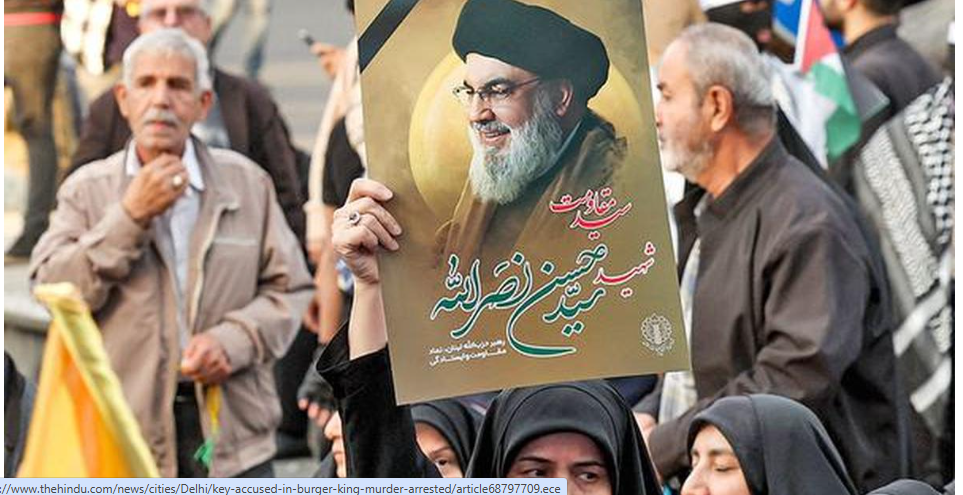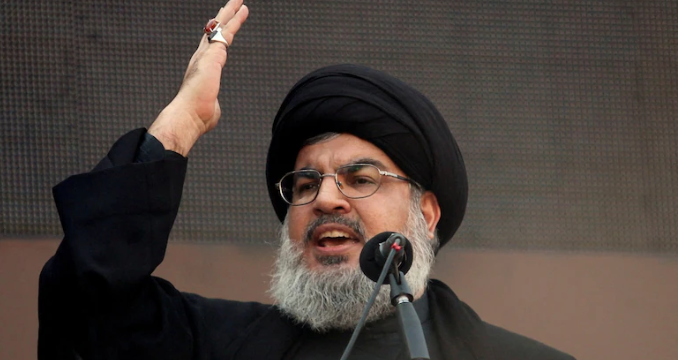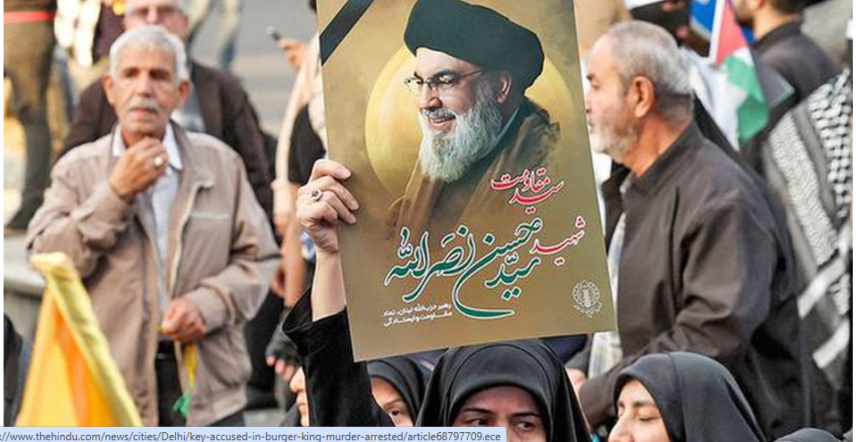1. Introduction: A Pivotal Moment in Middle Eastern Politics
Hassan Nasrallah’s recent killing of Hassan Nasrallah, the long-serving leader of Hezbollah, marks a significant turning point not only for the militant group but also for the broader geopolitical landscape of the Middle East. Nasrallah’s leadership spanned over two decades during which he transformed Hezbollah from a local militia into a formidable political and military force. His death raises critical questions about the future of Hezbollah, the power dynamics in Lebanon, and the ongoing conflict with Israel. This article delves into Nasrallah’s rise, the impact of his leadership, and the potential implications of his death for Hezbollah and the region.
2. The Rise of Hassan Nasrallah: A Brief Biography
Hassan Nasrallah was born on August 31, 1960, in Beirut, Lebanon. His early life was marked by the sectarian strife that characterized Lebanon’s civil war, which began in 1975. Nasrallah joined the Shiite Muslim group Hezbollah in the early 1980s, rapidly rising through the ranks due to his charisma and oratory skills. He became the group’s Secretary-General in 1992, succeeding Abbas al-Musawi, who was assassinated by Israeli forces.
Under Nasrallah’s leadership, Hezbollah underwent significant changes. He shifted the group’s focus from solely militant operations against Israel to a broader political role within Lebanon. His ability to appeal to the Shiite population and forge alliances with other political factions helped to solidify Hezbollah’s position as a key player in Lebanese politics.  For the more information click on this link
For the more information click on this link
3. Hezbollah’s Transformation Under Nasrallah
3.1 From Militant Group to Political Power
During the 1990s and 2000s, Hezbollah transformed from a militant group into a political party with significant representation in the Lebanese parliament. Nasrallah’s strategy involved engaging in Lebanese politics while maintaining the group’s military capabilities, allowing Hezbollah to wield considerable influence both domestically and regionally.
3.2 Resistance against Israel
Nasrallah is perhaps best known for his role in the resistance against Israel, particularly during the 2006 Lebanon War. Under his leadership, Hezbollah managed to repel the Israeli Defense Forces (IDF), which bolstered the group’s image as a defender of Lebanese sovereignty and gained Nasrallah significant popularity among the Lebanese populace and the broader Arab world.
3.3 Regional Alliances and Influence
Nasrallah also expanded Hezbollah’s influence beyond Lebanon, forging alliances with other regional actors such as Iran and Syria. These alliances helped Hezbollah become a key player in various conflicts across the region, including in Syria, where the group fought alongside Syrian government forces. Nasrallah’s ability to position Hezbollah as a critical player in the “axis of resistance” against Israel and Western influence further solidified his leadership.
4. The Impact of Nasrallah’s Leadership
4.1 Cult of Personality
Nasrallah developed a cult of personality around himself, using his charismatic public speaking skills to rally support for Hezbollah. His speeches often emphasized themes of resistance, anti-imperialism, and the struggle for Shiite rights in Lebanon and the wider Arab world. This cultivated a strong loyalty among his followers and solidified his status as a prominent figure in Middle Eastern politics.
4.2 Sectarian Politics
Nasrallah’s leadership also intensified sectarian divisions in Lebanon. While he positioned Hezbollah as a defender of the Shiite community, this often came at the expense of exacerbating tensions with Sunni and Christian factions in Lebanon. His approach contributed to the sectarian polarization that has characterized Lebanese politics, complicating the country’s already fragile political landscape.
4.3 The Syrian Civil War
During the Syrian Civil War, Nasrallah’s decision to commit Hezbollah forces to support Bashar al-Assad’s regime had far-reaching consequences. While it solidified Hezbollah’s alliance with Iran and increased its regional influence, it also alienated many Lebanese citizens who opposed the Syrian regime. This involvement further complicated Lebanon’s internal dynamics and led to significant backlash against Hezbollah within the country.
5. The Circumstances Surrounding Nasrallah’s Death
Hassan Nasrallah’s death came as a shock to many and was reportedly the result of an Israeli drone strike, a development that highlights the ongoing tensions between Hezbollah and Israel. The strike not only underscores the precarious security situation in the region but also raises questions about the intelligence capabilities of both Hezbollah and Israel.
6. Immediate Reactions to Nasrallah’s Death
6.1 Hezbollah’s Response
In the immediate aftermath of Nasrallah’s death, Hezbollah declared a state of mourning, emphasizing his contributions to the resistance and the Shiite community. The group’s leadership vowed to continue his legacy, but the extent to which they can do so remains uncertain.
6.2 Regional and International Reactions
The reaction to Nasrallah’s death extended beyond Lebanon. Regional allies, including Iran, condemned the assassination and pledged support for Hezbollah, framing it as a direct attack on the resistance axis. Conversely, Israel celebrated the event as a significant victory in its ongoing struggle against Hezbollah.
7. Implications for Hezbollah’s Future
7.1 Leadership Transition
The most immediate concern for Hezbollah is the question of leadership succession. Nasrallah’s charisma and political acumen were pivotal in shaping Hezbollah’s identity and strategy. The group must now navigate the transition to new leadership, which could lead to internal power struggles and challenges in maintaining cohesion.
7.2 Changes in Strategy
Nasrallah’s death could also lead to a reevaluation of Hezbollah’s strategies. While the group has a well-established military apparatus, the loss of its charismatic leader may necessitate a shift in approach, particularly in engaging with Lebanese politics and addressing the concerns of its constituents.
7.3 Potential for Increased Violence
The potential for increased violence cannot be overlooked. Nasrallah’s death could lead to heightened tensions between Hezbollah and Israel, with the possibility of retaliatory strikes or escalated military confrontations. The precarious balance of power in the region may tip as Hezbollah seeks to assert its strength in the wake of losing its leader.
8. The Broader Geopolitical Context
8.1 The Iran Factor
Iran’s influence in the region remains a critical factor in the aftermath of Nasrallah’s death. As Hezbollah’s primary backer, Iran will likely continue to provide support, but the dynamics of this relationship may evolve, especially if there are shifts in Hezbollah’s leadership.
8.2 The Role of Regional Powers
Other regional powers, including Saudi Arabia and Turkey, will be closely monitoring the situation. Nasrallah’s death may create opportunities for these countries to exploit the power vacuum and shift the balance of power in Lebanon and the broader region.  For the more information click on this link
For the more information click on this link
9. The Future of Hezbollah and Lebanon
9.1 Challenges Ahead
Hezbollah faces significant challenges moving forward. The need to maintain its military capabilities while engaging with a fragmented political landscape in Lebanon will require adept leadership and strategy. The group’s ability to navigate these challenges will determine its future relevance and influence.
9.2 The Impact on Lebanese Politics
The power vacuum created by Nasrallah’s death could lead to shifts in Lebanese politics. Other factions may seek to capitalize on the situation, and the potential for increased sectarian tensions looms large. The future of Hezbollah will undoubtedly impact the broader political landscape in Lebanon.
10. Conclusion: An Uncertain Future
Hassan Nasrallah’s death signifies the end of an era for Hezbollah and presents a critical juncture for the group and Lebanon. The complexities of leadership succession, regional dynamics, and the ongoing struggle with Israel will shape the future of Hezbollah and its role in Lebanese politics.
As Lebanon grapples with the aftermath of this pivotal event, the broader implications for the Middle East remain profound. The potential for increased violence, shifts in alliances, and the ongoing struggle for power will define the region’s trajectory in the coming years. The legacy of Hassan Nasrallah will undoubtedly influence the narrative, but the question of who will emerge as the new leader of Hezbollah and how the group will adapt remains to be seen. ALSO READ:-“BPCL Q2 Net Profit Slides 72% to ₹2,397 Crore Amid Volatile Market and Cost Pressures”





